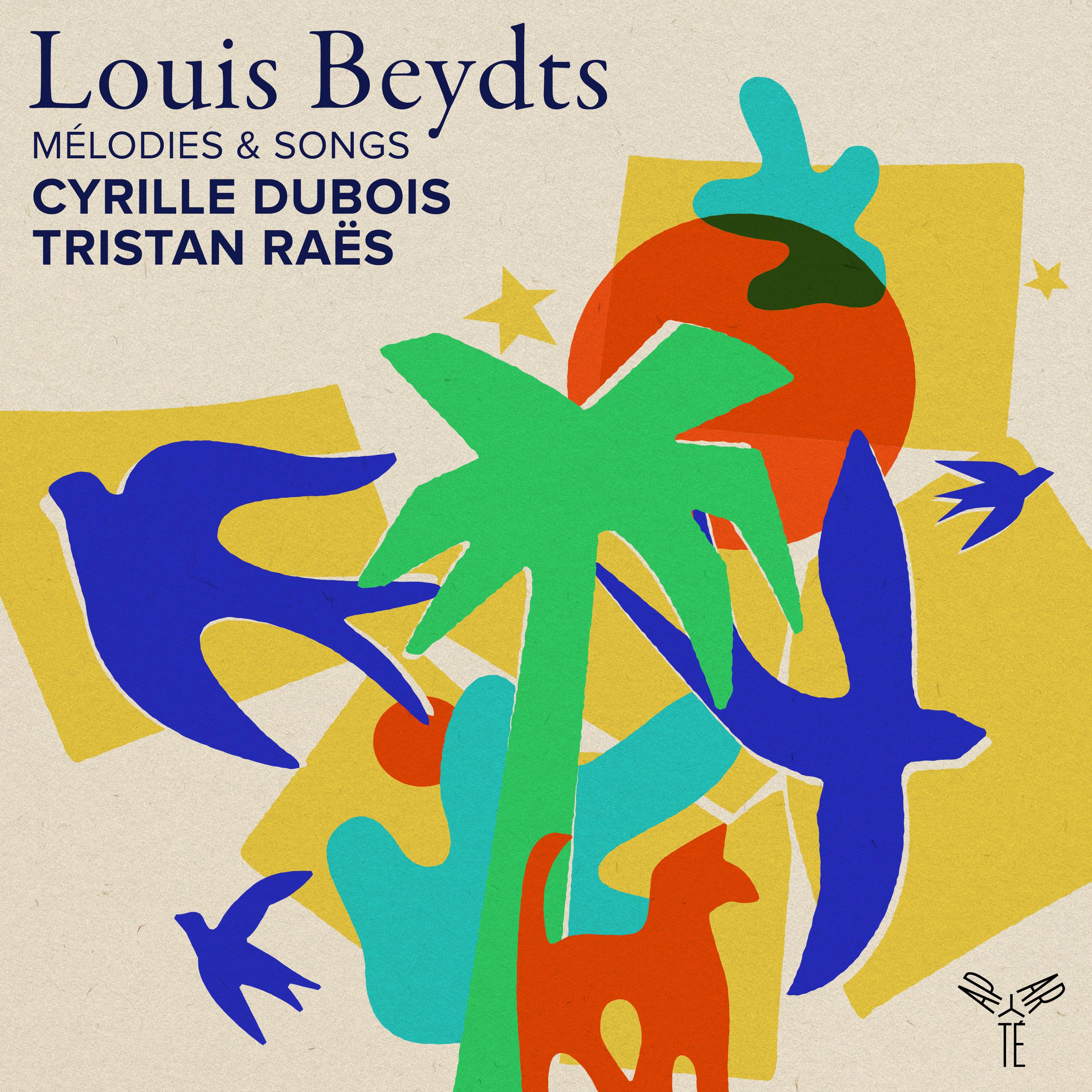After two albums dedicated to the lieder of Franz Liszt and then to the mélodies of the Boulanger sisters, followed by a Gramophone Award-winning complete recording set of Fauré's mélodies, Cyrille Dubois and Tristan Raës have dedicated their new opus to another great melodist, Louis Beydts.
With 'Beydts: Mélodies & Songs', the duo have taken up the challenge of bringing up to date some of the great song cycles by this composer from Bordeaux in the first half of the 20th century, whose works have unjustly fallen into oblivion.
For more than ten years now, Tristan and I have been exploring the infinitely rich repertoire of the French mélodie, aiming to give this refined music an interpretation that is fresh and suited to present-day audiences. While seeking out uncharted territories, as is our wont, we came across Louis Beydts, and what (according to connoisseurs at least) is regarded as his most outstanding song cycle: Chansons pour les Oiseaux. Straight away, that sparked in us a desire to get to know the other mélodies written by this composer, who hailed from Bordeaux. His style instantly had us charmed!
His rich filmography has led him to be unfairly pigeonholed as a composer of “light” music. But Louis Beydts developed a strong and complex harmonic language, frequently superimposing melodic elements to create a luxuriant polyphony which often gives rise to delightful harmonic friction, and even dissonance. His song-writing, furthermore, is nourished by an unmistakeable fondness for jazz – that fascinating new genre which was then all the rage on the other side of the Atlantic, while in Europe other developments were taking place. His mélodies are always elegant, with a certain naturalness in the vocal line that unquestionably links him to the great French art-song tradition that he inherited, and to which he always remained very attached. His language is made even more eclectic by a certain causticity and facetiousness in his mélodies. Beydts bridged the gap between art music and popular music, and – rather like Poulenc, with whom he shared a penchant for humour, and a certain duality – he found himself at a tipping-point in the evolution of the genre, when, like many of his peers, he turned away from the old form, linked to the tonal system (which he had taken to the very limits of impressionism), and adopted a modal, polymodal, polytonal, or even atonal, language.
For these many reasons, we felt that it was important, seventy years after the death of Louis Beydts, to champion his melodies and give them a new lease of life. We would have liked to have recorded all of them, but unfortunately some of the scores are not readily available. We decided therefore to focus on some of his more important song-cycles, while also including a few individual pieces that appealed to us, thus providing what we feel to be a fairly comprehensive overview of the musical world of this very endearing composer, whom it gives us immense pleasure to enable the listener to discover – or rediscover. Cyrille Dubois
The album won a Gramophone Editor's Choice, was selected by the Financial Times, Le Monde and Pizzicato Magazine (Supersonic), and received critical acclaim (Opéra Magazine, France Musique, Classica...).
The Aparté label is proud and happy to be working alongside Cyrille and Tristan to explore, discover and serve this splendid and little-known repertoire.
'The seductive power of these miniatures lies in a paradoxical demand for grandeur, to which Cyrille Dubois's cosmic singing and Tristan Raës's planetary piano marvellously subscribe.' Le Monde
‘This is an absolutely magnificent recording [...] devoted to Louis Beydts, a composer worth discovering’ France Musique
'Cyrille Dubois has risen to the top rank of interpreters of French songs thanks to his exceptional sensitivity of style, and Tristan Raës ensures immaculate teamwork.' The Financial Times
The adventure continues for the duo, with a series of concerts at London's Wigmore Hall, focusing on the young Fauré and his masters!




